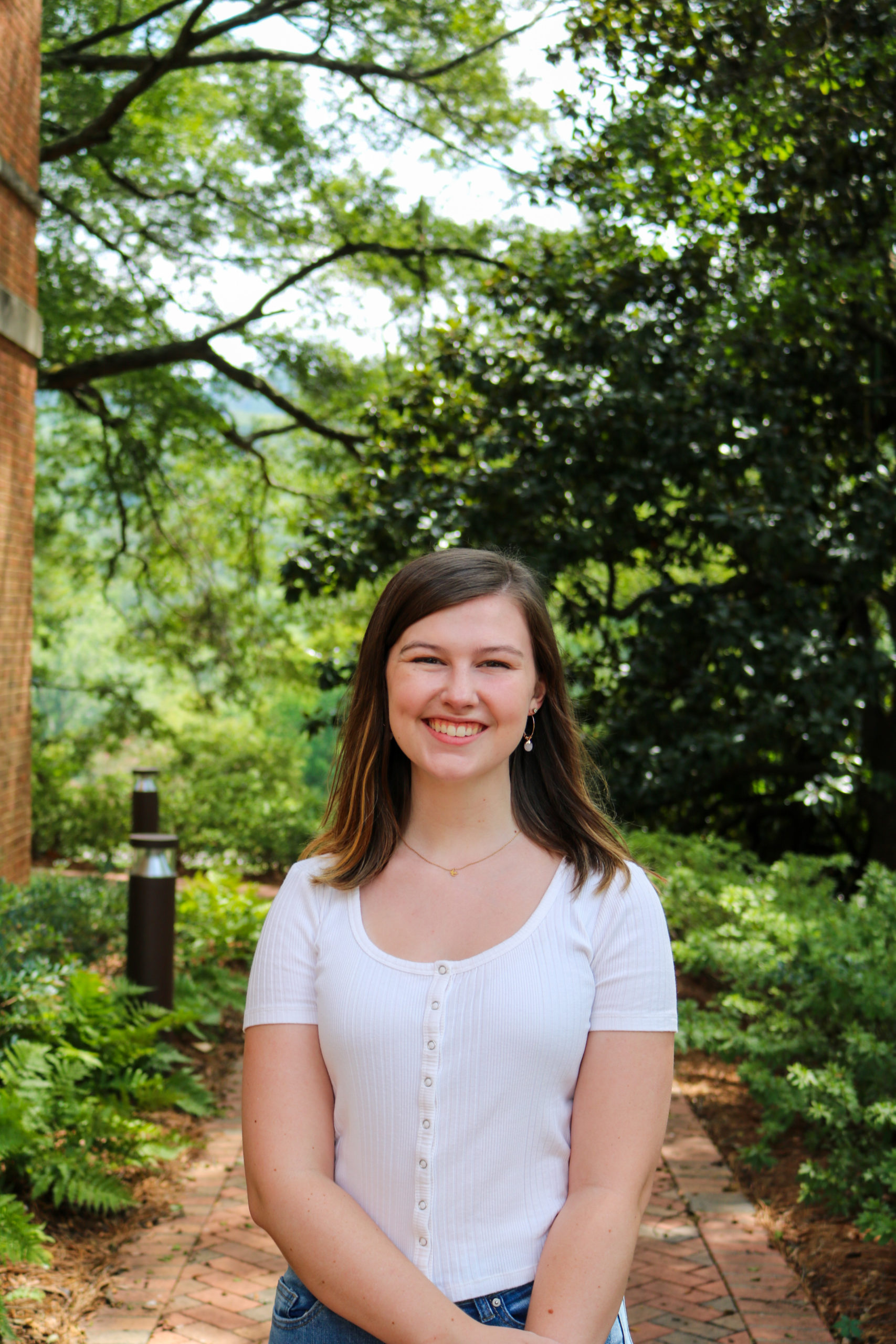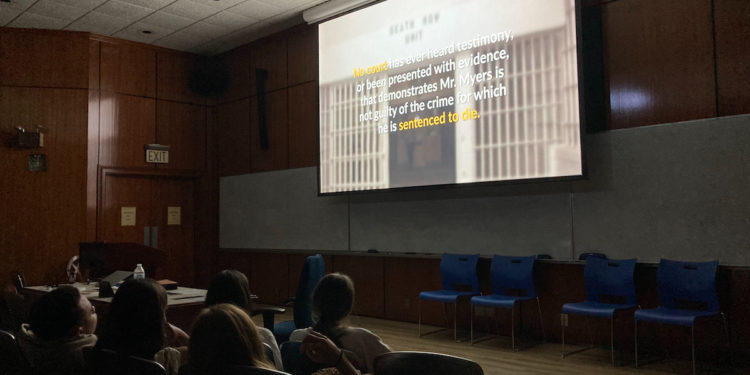Imagine being on trial. The jurors vote guilty, and you are sentenced to life without the possibility of parole. Just as you heart begins to sink, you find out that the judge overrules the jurors’ sentence, and suddenly, you are facing the death penalty. This is precisely what happened in the case of Rocky Myers in 1993 in Decatur, Alabama. After three decades of prison, Myers is finally allowed to present his case to the courts again in hopes of being granted clemency. Amnesty International is rallying around this individual, and Samford’s Amnesty International premiered the documentary laying out Myers’ case Thursday evening.
“We find Mr. Myers’ case to be an important example of what AIUSA (Amnesty International USA) views as a serious violation of human rights,” TJ Riggs, the president of Samford’s Amnesty International, said. “Mr. Myers’ legal team, friends and family have presented a credible case for his innocence and have pointed out flaws in his original defense that should warrant an appeal.”
According to the documentary, during Myers’ initial trial in 1993, no evidence was presented that tied him to the crime. In fact, an eyewitness to the murder positively identified another individual at the scene of the crime. One of the key witnesses, Marzell Ewing, has since said that he lied about Myers’ guilt in an exchange to keep himself from being charged of an unrelated crime. Myers’ original appellate attorney abandoned Myers in the post-conviction proceedings, so Myers has not been able to appeal in Federal Courts.
The documentary that Amnesty International premiered was produced by Myers’ legal team, hoping that this would raise awareness to this case and Alabama’s death penalty in general. According to the Death Penalty Information Center’s website, Alabama got rid of judicial override in 2017; however, this was not made retroactive. Over 30 people are currently facing the death penalty due to a judge overriding the jury’s sentencing.
U.S. Supreme Court Justice Thurgood Marshall once said, “It approaches the most literal sense of the word ‘arbitrary’ to put one to death in the face of a contrary jury determination where it is accepted that the jury had indeed responsibly carried out its task.”
Amnesty International USA partnered with Myers’ legal team to premiere the documentary in order to spread the word about Myers’ case. At Samford’s screening, Amnesty International invited students to sign the petition for Myers’ clemency and write letters to the State Representatives, convincing them to review Myers’ case. This is the second event Samford’s Amnesty International has held on Myers’ behalf. In October, the students wrote to Gov. Kay Ivey, asking her to grant clemency to Myers. After the governor failed to respond, Myers’ legal team and Amnesty International have shifted their approach.
“In an age of constant information, it is easy to become disillusioned with the abuses happening around the world every day,” Riggs said. “The Rocky Myers case and screening presented a unique opportunity for students to learn and respond to injustices near home, and ultimately support the Christian mission to protect the sanctity of life for all.”
According to their website, Amnesty International USA works to “protect people wherever justice, freedom, truth, and dignity are denied.” Samford’s branch of Amnesty International not only works to promote change in international issues, but also in local justice issues. The group attempts to give students the opportunity to fight injustices that they may not have been aware of. In Rocky Myers’ case, students involved in Amnesty International have been working continuously to end an injustice that they have seen in their local area of Alabama.

Arts & Life Editor






